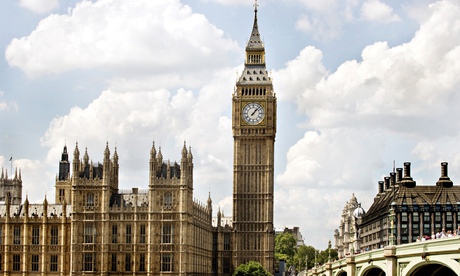Rather than doing a “Lords abuse” piece masquerading as comment, Chris Huhne (Let’s halt the ermine factory, 11 August) could have addressed a more serious aspect of what is going on. One consequence which has not really been explored is that under the present arrangement, the coalition has an inbuilt majority in the revising chamber. Between 2000 and 2010 the Labour government did not have a majority in the Lords and week by week ministers and business managers made arrangement with opposition Lib Dems or Tories to secure business. This meant compromise and lots of defeats.
It also resulted in better quality legislation, as ministers in the Lords reported to their secretaries of state what could be achieved and at what price. In some cases defeat would mean the loss of the legislation, so it was to be avoided with a deal. In most cases I found the price was worth paying as it improved the legislation. This has not been the case since 2010. Issues we could have settled by negotiation have been rammed through because each part of the coalition has told Labour “we have written agreement with the other coalition party and we cannot do a deal however much we would like to”. This is not the way a revising chamber, however constituted, should work.
So for the next parliament, when planning for a hung Commons and possible coalition in that House, why cannot we exclude the Lords? We could simply have the largest coalition party in the Lords providing the ministers and no commitment from the smaller coalition partners’ peers other than to look at the issues on their merits. An alternative would be for three grown-up party leaders to say that all votes in the Lords would be free votes, so leaving backbench members of the governing coalition partners and opposition to make their own minds up. This would avoid the obvious distress that some Lib Dems have suffered as they kept their part of the bargain.
I prefer the latter course, but it does require three grown-up party leaders.
Jeff Rooker
House of Lords
• Smuggling out in August the news of 22 more appointments to the Lords tells its own story (Peerages for two more Conservative donors, 9 August). The concern over cash for peerages is justified, but is only part of the problem. The fundamental point is that an appointed house lacks the legitimacy to do its job properly, since its members represent nobody. At present, the electorate is shut out of the second chamber, except as visitors. Electing the members of a reformed chamber need not threaten the primacy of the House of Commons, as opponents of reform claim. Solutions exist, although the present government fumbled the issue in its bill. The only answer to the long-running question of who should be in the second chamber is to allow the people to choose who makes the laws on their behalf.
Damien Welfare
Co-ordinator, Campaign for a Democratic Upper House
• Surely the quick and easy way to eradicate the incentive of a peerage for party donors is to remove the lordly title. Entitlement to sit in the chamber for hours on end is not the attraction – use of the title most certainly is.
John Saxbee
Haverfordwest, Pembrokeshire




